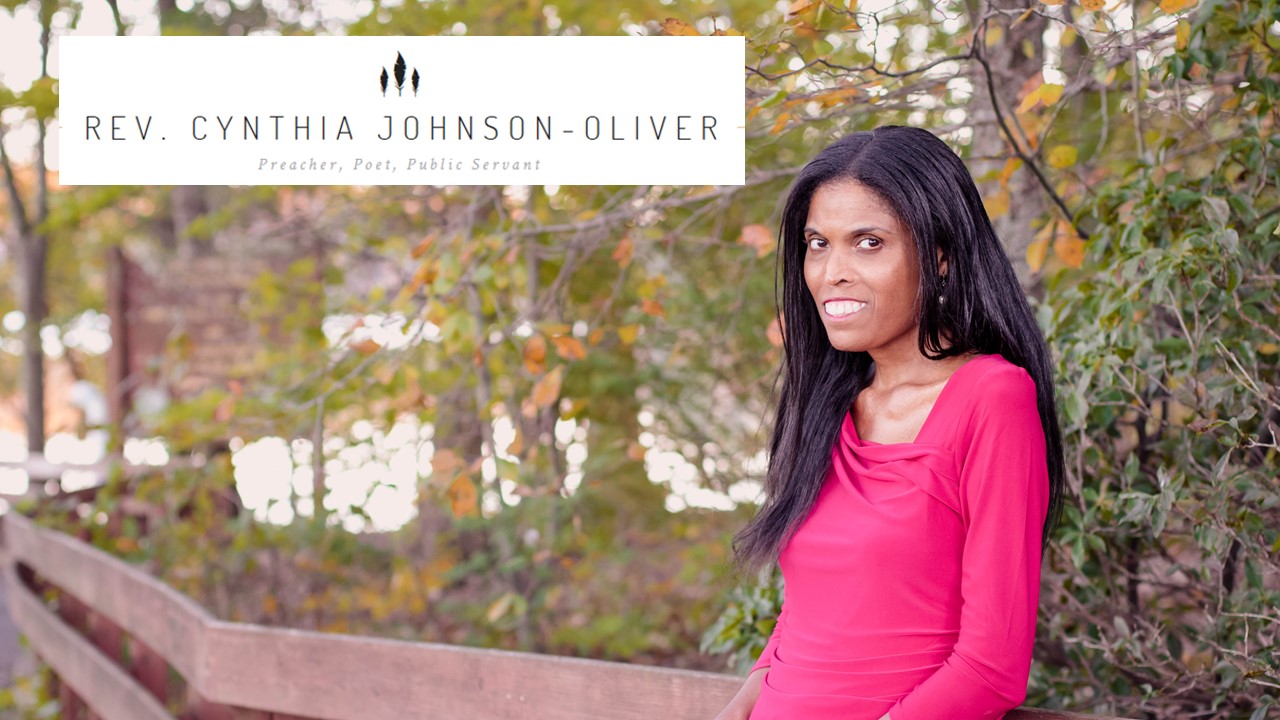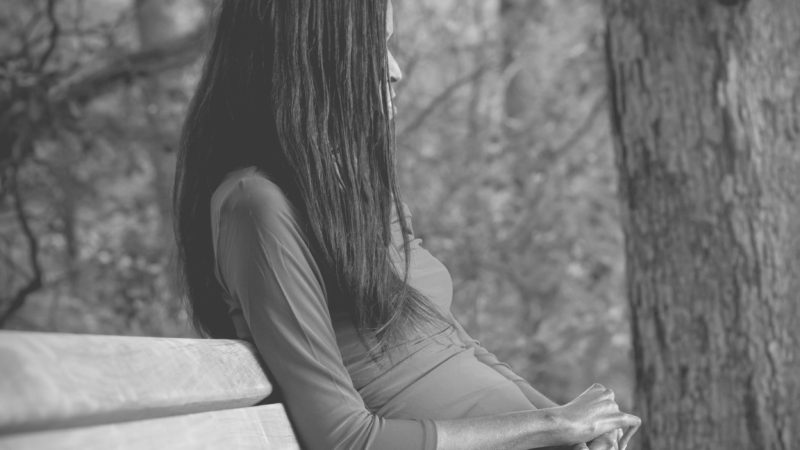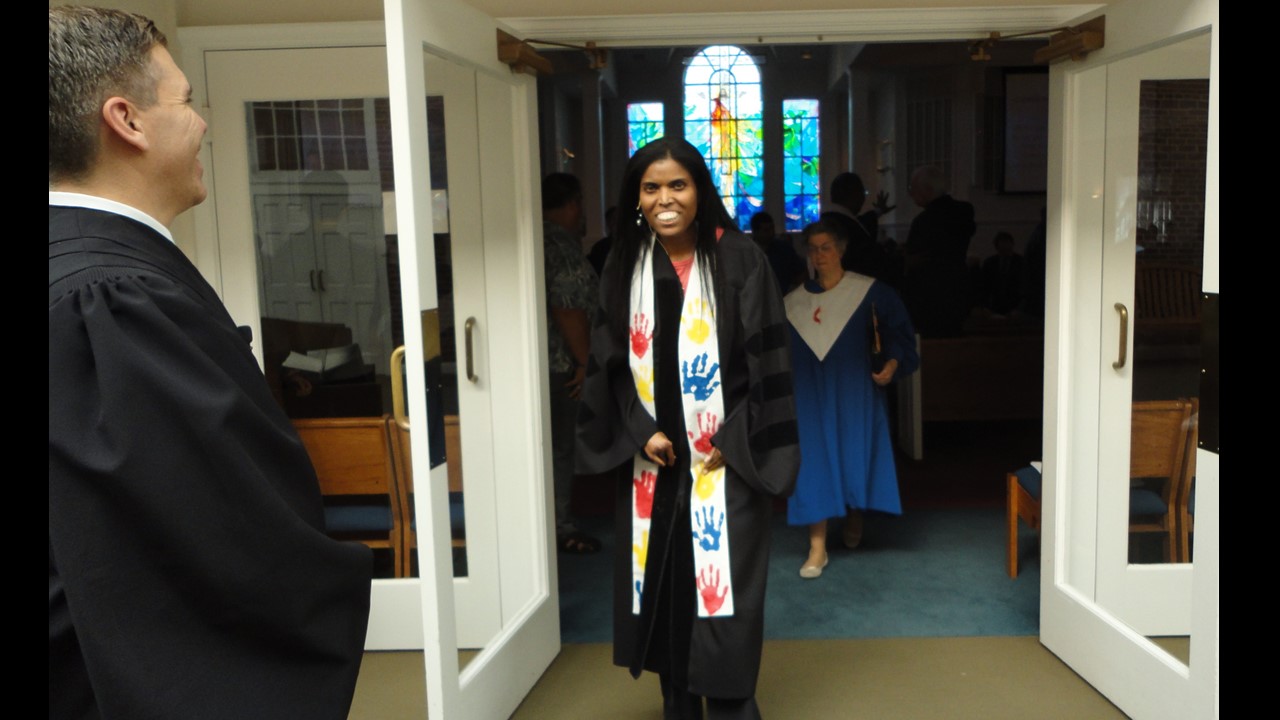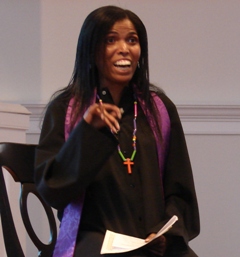I call myself a poet.
I call myself a poet in the way that my 7-year old daughter calls herself a doctor. She wears a lab coat with a real pink stethoscope around her neck while examining her patients (usually one of us) and “researching” in science books. She’s been planning ahead. When she was 5 years old, she asked if there will be recess in medical school and was more surprised than disappointed when we said no. She also asked if we could buy her an x-ray machine. We declined. She was more disappointed about that. Most of us call her actions play, but in a way, she is also calling those things that are not as though they are.
 I call myself a poet even though I have not yet published a poem. I have only taken one graduate course in poetry. I don’t write nearly enough. The spoken word stage frightens me (which is odd since I’ve been preaching since age 19). And I’m hesitant to share my work. I call myself a poet because in my heart, I know that I am one. Whether reading, memorizing, reciting, dreaming, or writing, poetry has been a part of my life for as long as I can remember and I know that it will be an important part of my life for years to come. Like my daughter, it is not merely who I want to become, but it is already who I am, already within me waiting to mature, grow, and ripen in its season.
I call myself a poet even though I have not yet published a poem. I have only taken one graduate course in poetry. I don’t write nearly enough. The spoken word stage frightens me (which is odd since I’ve been preaching since age 19). And I’m hesitant to share my work. I call myself a poet because in my heart, I know that I am one. Whether reading, memorizing, reciting, dreaming, or writing, poetry has been a part of my life for as long as I can remember and I know that it will be an important part of my life for years to come. Like my daughter, it is not merely who I want to become, but it is already who I am, already within me waiting to mature, grow, and ripen in its season.
Thus, when I decided that 2020 would be the year that I took this calling seriously, I immediately thought of Rainer Maria Rilke’s exhortation in his Letters to a Young Poet. Written in response to an aspiring poet who asks for Rilke’s feedback, rather than critique his poetry, Rilke advises,
“Go into yourself. Find out the reason that commands you to write…. This most of all: ask yourself in the most silent hour of your night: must I write? Dig into yourself for a deep answer. And if this answer rings out in assent, if you meet this solemn question with a strong, simple “I must”, then build your life in accordance with this necessity; your whole life, even into its humblest and most indifferent hour, must become a sign and witness to this impulse.”
Rilke’s words have resonated with me at different times along my journey. They are a reminder to take seriously the “I must” areas of my life, whether love, family, or vocation. The words serve as a challenge for me to remember that some things don’t just happen. The guidance to “build your life” is an invitation to a daily and hourly commitment, a call to even our most indifferent hour to witness in some way to that which we must do.
 This year, I looked within for the deep answer. I acknowledged that I must write. I felt that writing may be a matter of life or death — not necessarily in a dramatic way. Rather, it is a realization that we die a little inside each time we ignore the truth of who we are. To the poet, poetry is life.
This year, I looked within for the deep answer. I acknowledged that I must write. I felt that writing may be a matter of life or death — not necessarily in a dramatic way. Rather, it is a realization that we die a little inside each time we ignore the truth of who we are. To the poet, poetry is life.
But I am going a step further. This is also the year that I build my life in accordance with this necessity, not only for poetry writing but also for blogging and for my nonfiction writing project. Over the past month, I have been releasing those things that occupy too much space in my heart and mind. I am rearranging my life for this creative calling.
Therefore, on this last day of National Poetry Month, I am sharing my intention with you. The timing may be later in the month, and in life, for such a new declaration. But I embrace this second act knowing that life has its own wisdom and timing. Today is a great day to begin anew. Thus, I am committing to more poetry – reading more, learning more, writing more, and submitting more. Taking Rilke’s advice, I will try not to worry too much about the outcome – what other’s think – but I will focus on the process. I will write because I must.
Thank you for visiting my blog. For more of my journey, subscribe below and follow me on Twitter and Instagram @cjohnsonoliver. Click here to learn more about my nonfiction work in progress.















![By Barry haynes (Own work) [CC-BY-SA-3.0 (http://creativecommons.org/licenses/by-sa/3.0)], via Wikimedia Commons](http://cynthiajohnsonoliver.com/wp-content/uploads/2014/10/Try_Again-300x199.jpg)